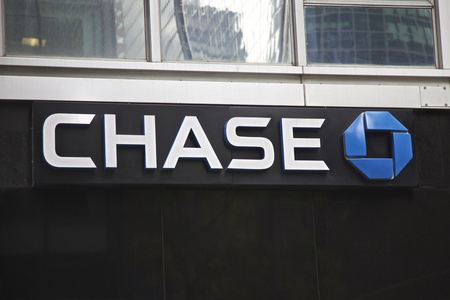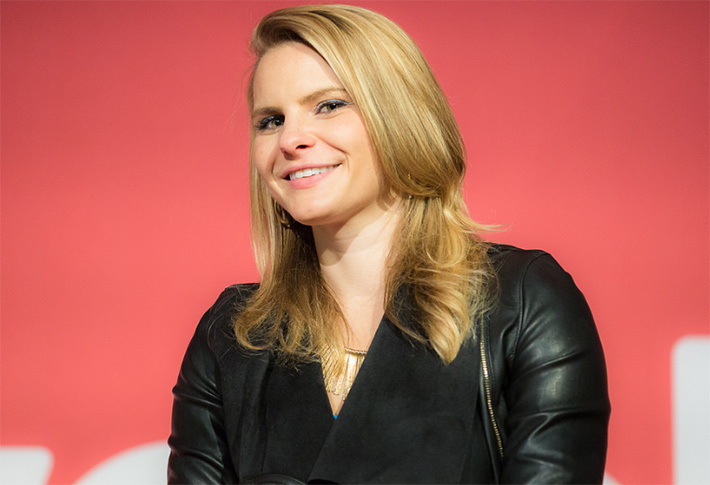Archive for 2019
Canada Fintech Week Launches in Toronto
August 12, 2019 This week sees the first ever Canada Fintech Week (CFW) in Toronto. Running from August 12th to the 15th, the four-day celebration of everything fintech in Canada features a slew of events and panels for those in the industry.
This week sees the first ever Canada Fintech Week (CFW) in Toronto. Running from August 12th to the 15th, the four-day celebration of everything fintech in Canada features a slew of events and panels for those in the industry.
Ranging from how to incorporate blockchain technology in Holocaust asset recovery to cybersecurity, to the future of open banking, CFW appears to cover a mix of topics and issues that are at the forefront of various corners of the scene.
CFW was launched by the Digital Finance Institute (DFI), a thinktank established to provide assistance to the digital finance ecosystem of Canada, with particular attention being paid to inclusion, responsible innovation, and the supporting of women in fintech. Having held the Annual National Fintech Canada Conference for the previous four years, DFI is combining the two events into one this year, with the fifth conference taking place on Wednesday.
In the lead up to CFW, DFI has released a list of its top 50 fintech companies in Canada that features the likes of Interac, OnDeck, and Lendesk; which accompanies its previous list of the top women in Canadian fintech. FundThrough, whose Director of Innovation spoke with deBanked last month after appearing on this list, will be hosting a panel covering alternative finance on Thursday.
CFW is coming at a time when fintech in Canada appears to be on the up, with a recent report from PwC-CBInsights finding that the first six months of 2019 have seen totals funds raised by Canadian fintech firms almost doubling from $133 million in Q1-Q22018 to $251 million. As well as this, investments in seed-stage companies have risen too, with the portion of seed round investments made in the first six months of 2018 being 36% of total investments, while 2019 witnessed 49%.
Gone with the Lend: Chase Bank Withdraws from Canada, Forgives All Credit Card Debt
August 12, 2019 In January 2018 Chase Bank released a statement detailing that it will be closing all of its Canadian credit card accounts on March 15 of that year, but customers should continue to pay their bills. Last week all of those debts were cancelled.
In January 2018 Chase Bank released a statement detailing that it will be closing all of its Canadian credit card accounts on March 15 of that year, but customers should continue to pay their bills. Last week all of those debts were cancelled.
Coming as a shock to many Chase customers, the decision comes as the bank withdraws entirely from the Canadian market, in which it had been active for 13 years. “Chase made the decision to exit the Canadian credit card market. As part of that exit, all credit card accounts were closed on or before March 2018. A further business decision has been made to forgive all outstanding balances in order to complete the exit,” said Maria Martinez, Vice President of Communications for Chase Card Services, in a statement. “Ultimately, we felt it was a better decision for all parties, particularly our customers.”
As noted by one former Chase customer who benefitted from the debt forgiveness, it is questionably unusual that Chase Bank would take into consideration the wellness of those customers in a market they no longer operate in. Speaking to CBC, credit card rewards expert Patrick Sojka guessed that the decision came after concluding it would be too costly and time-exhaustive to pursue the debt, “[Chase are] still probably paying taxes, paying accountants, and for them, they just probably worked it out and [said], ‘Let’s just forgive the debt and fully get out of the country.’”
Chase has not released information regarding when the decision was made, how much debt was outstanding, nor how many customers were signed up for the two cards, the Amazon.ca Rewards Visa and the Marriott Rewards Premier Visa.
The response has been universally positive amongst customers, with many of them having been forgiven for debt that stretched beyond CAD$1,000 ($757). Christine Langlois, a 24-year-old Montreal student who owed CAD$1,300 and hadn’t made regular payments on her Amazon card in five years, said that “It’s kind of like I’m being rewarded for my irresponsibility.”
With further questions remaining, such as why Chase didn’t sell the debt instead, Luke Sheehan, Vice President of Marketing at RateHub, commented on the uniqueness of the decision, saying “It’s definitely an odd situation. I can only surmise that there was some bigger corporate play that meant had to [sic] exit the market quickly, and there must have been some benefits for doing that … As far as anyone seems to be aware, it’s a complete one-off. The chances of that happening ever again to anybody are so remote.”
1 Global Capital’s Carl Ruderman Consents To Judgment With The SEC
August 10, 2019Update 10/4/19: According to the docket, Ruderman has satisfied the judgment in full, with only the sale of his condo remaining.
 The SEC’s lawsuit against Carl Ruderman, the former CEO of Hallandale Beach-based 1 Global Capital, has come to an end. He has consented to judgment in a settlement and the penalties are devastating, papers filed on friday with the Court show.
The SEC’s lawsuit against Carl Ruderman, the former CEO of Hallandale Beach-based 1 Global Capital, has come to an end. He has consented to judgment in a settlement and the penalties are devastating, papers filed on friday with the Court show.
Specifically, Ruderman is liable for disgorgement of $32,587,166 representing profits gained as a result of the conduct alleged together with prejudgment interest on disgorgement of $1,517,273 and a civil penalty of $15,000,000. He must also sell his Condominium and disgorge 50% of the equity. Online real estate websites estimate his property to have 5 bedrooms, 8 bathrooms, and be worth in the range of $5,000,000 – $6,000,000.
1 Global Capital filed for bankruptcy last year after its business was hampered by investigations being conducted by the SEC and US Attorney’s Office. The SEC brought its case against Ruderman and his company a month later and alleged that it “fraudulently raised more than $287 million from more than 3,400 investors to fund its business offering short-term financing to small and medium-size businesses.” The investments were alleged to be unregistered securities and that millions of the funds raised from investors were misappropriated by Ruderman. The settlement stipulates that he does not admit or deny the allegations.
No criminal charges have been brought to date.
The SEC settlement was technically entered into in June but had to be reviewed and approved by the five SEC commissioners.
The unopposed motion for judgment was filed last week. It was signed by the judge on Monday, August 12th.
Lending Club Still Logging Losses, But Not For Long?
August 9, 2019 LendingClub released its second quarter report this Tuesday.
LendingClub released its second quarter report this Tuesday.
Loan originations reached a new high of $3.1B, but the year-over-year growth rate for the quarter clocked in at only 11%, down from the 18% growth experienced the three straight previous quarters in a row. The company also generated a net loss of $10.6M. Beyond Q2 however, this appears to be in line with their plan for 2019, as they are forecasting to have a loss ranging from $23-38 million by year’s end, much better than the 2018 loss of $128.2M and 2017 loss of $154M.
“Since I took over as CEO three years ago, we have increased originations by 60% while tripling contribution dollars. We are leveraging our data, scale and marketplace model to execute with discipline and compound our competitive advantages,” LendingClub CEO Scott Sanborn asserted to investors in the earnings call. “Better use of data, increased automation and new communications approaches have increased our conversion rate, reduced our unit cost of operations and accelerated time to approval. For example, in Q2, 72 percent of our personal loan customers went from application to approval within 24 hours – that is up from 46 percent only a year ago.”
LendingClub’s recent decision to forward small business loan inquiries to Funding Circle and Opportunity Fund, did not come up. Funding Circle similarly did not elaborate on any developments relating to this partnership in their August 8th, 2019 H1 report.
Lending Club aimed its focus on the Select Plus Platform, a program that aims to make it easier for prospective investors to find borrowers who might otherwise be unseen due to their non-conformity to certain criteria, broadening the range of those who receive loans. “It really is addressing customers across the credit spectrum,” Sanborn told an investor when asked about Select Plus, “All of this fitting into the broader product-to-platform idea of just opening up our marketplace to other people who can serve the consumers that we have validated identity and income, and assessed credit worthiness, how else can we serve them not just through our own efforts but through the efforts of others.”
Funding Circle Originated $377M of US Loans in First Two Quarters of 2019
August 8, 2019Funding Circle originated $377M of loans in the US in the first six months of 2019, according to their latest public report. The company said that “growth was proactively controlled” and that they tightened higher risk band lending and increased prices. They’ve now loaned more than $2B cumulatively in the US since inception and their growth is being led by “new borrowers” that are being lured away from traditional lenders.
Funding Circle still lags behind PayPal, OnDeck, Kabbage, Square Capital, and Amazon in the US in loan origination volume, according to the deBanked small business finance rankings. Its closest competitors by volume are BlueVine, National Funding, and Kapitus.
Funding Circle Co-Founder & Managing Director James Meekings to Step Down
August 8, 2019 Funding Circle’s lackluster business performance has led to a casualty. Co-founder James Meekings, who serves as Managing Director of the UK Business (the company’s primary market), will be transitioning to a non-executive role on the UK board in Q3. He will no longer be MD, the company announced.
Funding Circle’s lackluster business performance has led to a casualty. Co-founder James Meekings, who serves as Managing Director of the UK Business (the company’s primary market), will be transitioning to a non-executive role on the UK board in Q3. He will no longer be MD, the company announced.
Lisa Jacobs, Funding Circle’s Chief Strategy Officer, will take over leadership of the UK business, the company subsequently disclosed.
Funding Circle went public less than 1 year ago on the London Stock Exchange. Since then the share price has plummeted by 75%.
The company has been busy trying to correct course through various maneuvers, one of which has been to cut CEO Samir Desai’s annual compensation.
Michele Romanow on Clearbanc’s Recent $300M Series B
August 7, 2019 Last week Clearbanc announced it had secured $300 million in a Series B. Specializing in the provision of capital to business owners for the purchasing of ads on digital platforms such as Facebook and Instagram, the company operates in an untapped niche. Alternative financing for the acquirement of a highly specific product, this product being the form of advertising that is currently most wide-spread.
Last week Clearbanc announced it had secured $300 million in a Series B. Specializing in the provision of capital to business owners for the purchasing of ads on digital platforms such as Facebook and Instagram, the company operates in an untapped niche. Alternative financing for the acquirement of a highly specific product, this product being the form of advertising that is currently most wide-spread.
And perhaps this is why the Toronto-based company received an investment of such magnitude for their second round of funding. The signs of success are there: high demand; low supply; and as well as this, there’s a celebrity profile attached to Clearbanc, Dragons’ Den’s Michele Romanow.
Having co-founded the company in 2015, Romanow now acts as its President. Speaking to deBanked recently, the celebrity investor explained how Clearbanc works as well as the what it does differently.
Ultimately, it comes down to two intertwined strategies: focusing on unit economics and having good tech.
“Our core is really understanding what your customer acquiring cost and your product costs are, as well as if you’re making money on each transaction,” explains Romanow. Speaking in straight forward calculations, the dragon states that, at a basic level, Clearbanc will check and find that if it takes $10 to make a product, $10 to buy Facebook ads, and that this leads to $50 in sales, then you have positive unit economics. And that this sort of calculation is what their tech does, just on a much more complex scale.
“We built a machine learning model on a fundamental understanding of what the unit economics of a business were.” A range of financial information is plugged in, “thousands of factors” are accounted for, and an algorithmically approved recommendation is prepared for underwriters.
 Such reliance on tech and number-crunching has produced an unexpected side-effect for Clearbanc. Strict adherence to positive and negative numerical values has steamrolled two potential biases encountered in the finance raising process: location and gender. Romanow jokes about a report showing that just four states received 80% of venture capital in 2018, and nine raised nothing at all, saying that “it’s impossible that there’d be no good entrepreneurs in nine states of America.” Which is partly why Clearbanc has invested in 43 out of 50 so far, each business being greenlighted by their tech. As well as this, the company has funded eight times more women-led businesses than the industry average for venture capital.
Such reliance on tech and number-crunching has produced an unexpected side-effect for Clearbanc. Strict adherence to positive and negative numerical values has steamrolled two potential biases encountered in the finance raising process: location and gender. Romanow jokes about a report showing that just four states received 80% of venture capital in 2018, and nine raised nothing at all, saying that “it’s impossible that there’d be no good entrepreneurs in nine states of America.” Which is partly why Clearbanc has invested in 43 out of 50 so far, each business being greenlighted by their tech. As well as this, the company has funded eight times more women-led businesses than the industry average for venture capital.
Surprising results aside, Romanow claims that much of her recent ventures are inspired by her time with Dragons’ Den, with the concept for Clearbanc partially stemming from her reflections on the format of the show.
Specifically, the idea struck her after seeing a number of business owners pitch themselves for funding in exchange for equity, when what they were receiving was not worth pawning off part of their company. Believing that a better deal existed, Clearbanc was created with the plan to operate via revenue share agreements, taking a percentage of revenue over an undetermined amount of time until a fixed cost is paid.
As well as this, Clearbanc offers business owners access to its Venture Partner Network, a team of successful investors and high profile entrepreneurs that will offer guidance. Included are the likes of Jason Finger of Seamless, Jack Abraham of Hims, Gary Vaynerchuck, and Romanow herself. Sharing similarities with the setup of Dragons’ Den, in which celebrity investors offer funding and guidance, it seems like Romanow is carrying her experiences along with her.
As to where else she might carry them, Clearbanc is looking to eventually expand. “We’re experimenting in a couple of international territories right now, but we’ll have some announcement about that probably later this year,” she explains tightlippedly. For now she’ll continue to work with tech in North America with the belief that it’s the way forward, “when we use data better, we can drive down prices for everyone. And I think that’s an important part of what the equation is.”
Fox Corp / Credible Deal – What’s Online Lending Got To Do With TV Broadcasting?
August 5, 2019 On Sunday Fox Corp announced it had agreed a deal to buy a majority share of 67% in Credible, a San Francisco-based online lending platform that is publicly traded in Australia.
On Sunday Fox Corp announced it had agreed a deal to buy a majority share of 67% in Credible, a San Francisco-based online lending platform that is publicly traded in Australia.
Credible, which was valued at $397 million by Fox, provides credit checks for mortgages, personal loans, and student loans; gathers the information yielded; and presents prequalified rates and refinancing options to customers, which they can click-through to. In addition to an investment of $265 million for their stake, Fox Corp will allocate an additional $75 million to cover Credible’s operating costs for the next two years.
The news may come as odd to many familiar with some of the media company’s biggest subsidiaries, such as Fox News, 21st Century Fox, and Fox Sports, but it is the second such investment to be made since Fox Corp sold the majority of its television and film assets to Disney for $71 billion in 2017. May saw Fox acquire 4.99% of Stars Group, an online sports betting site, for $236 million.
 The move could be viewed as an attempt to enhance how current financial content is delivered through Fox Corp’s channels. With access to a pool of data that covers information relating to large swathes of credit ratings, loan approval speed, and financing priorities, Fox Business Network would be better positioned to deliver analysis. The Wall Street Journal, which shares a parent company with Fox Corp, News Corp, noted that Fox executives will be able to use Credible’s data in the digital avenues of its local television stations.
The move could be viewed as an attempt to enhance how current financial content is delivered through Fox Corp’s channels. With access to a pool of data that covers information relating to large swathes of credit ratings, loan approval speed, and financing priorities, Fox Business Network would be better positioned to deliver analysis. The Wall Street Journal, which shares a parent company with Fox Corp, News Corp, noted that Fox executives will be able to use Credible’s data in the digital avenues of its local television stations.
Lachlan Murdoch, who was made Chairman and CEO of Fox Corp when his father Rupert stood down earlier this year, said in a statement that “The acquisition of Credible underscores Fox Corporation’s innovative digital strategy that emphasizes direct interactions with our consumers to provide services they want and expand their engagement with us across platforms.” While in return, Credible will “benefit from our audience reach and scale, will drive strategic growth, further develop our brand verticals and deepen consumer relationships.”
A fate that Credible founder and CEO Stephen Dash appears to be content with, stating that “Fox Corporation’s record of innovation and focus on audience engagement will further enhance Credible’s position as a leading consumer finance marketplace in the United States, creating opportunities for organic growth and the expansion of the Credible platform. Credible’s industry-leading user experience, combined with FOX, will provide greater impact and scale for consumers.”
But not everyone with a stake in Credible is convinced by the decision, as Bell Potter analyst Damian Williamson has claimed. “Premature is the word to describe how some minority shareholders see the transaction … This company is operating in a very large market and has the potential to do really well.”
Regardless, the deal comes after months of negotiations, which were initially secured in May, only to go through an on-again-off-again phase until recently. While signed off by both Credible and Fox Corp, the sale won’t be confirmed until the Australian Securities Exchange approves the transaction.
Representing the first of its kind in acquisitions, the Fox Corp-Credible deal is an anomaly within the industry, being the pioneer case of a broadcasting company foraying into alternative finance – a field notedly uncovered by vast portions of the media.





























